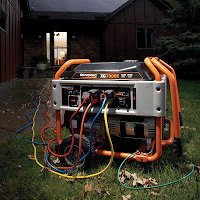 |
| Council Member Charlie Luke |
When we see or read reports of the seemingly more prevalent disasters that strike around the world, one simple question returns again and again: If disaster were to strike in Salt Lake City, are we prepared? Do you know what to do in case of an emergency or disaster such as those mentioned above?
In taking a hard look at our City’s emergency preparedness posture, the answer is, we are much better off than we were five years ago, but there is much more that can be done. Salt Lake City’s Emergency Services personnel include the traditional fire, medical and police personnel, as well as nontraditional teams from Public Services and Public Utilities.
The Emergency Services teams are well prepared for dealing with both day-to-day “garden variety” emergencies and major emergencies, but disasters are different. Disasters cross geo-political boundaries and consume all resources within hours. If a major earthquake occurs, emergency response from official government sources will be overwhelmed and delayed due to the magnitude of such an event. Residents could be “on their own” for days or even weeks.
As individuals, families and neighborhoods, everyone must come to the firm realization that the first and most important line of emergency preparedness in Salt Lake Valley is the individual. Each person is responsible or preparing for a disaster. Much can be done for little expense and a small investment of time.
Salt Lake City’s Office of Emergency Management is an excellent source of information for emergency preparedness and offers the following recommendations: three items that should be immediately available are a battery powered flashlight, a battery powered radio and a well stocked first-aid kit. Keep at least a half tank of gas in your car at all times. Next, store a 3-7 day supply of water; at least one gallon per person in your household per day. Seventy-two hours is a minimum planning figure used to prepare a supply kit for each person in your family.
You should consider assembling kits with items you will need to sustain yourself for 120 hours without outside assistance, utilities, or human needs supplies. Be sure to include an extra pair of glasses and medications for any conditions you may have, such as diabetes, heart conditions, or asthma as these medications may not be readily available.
Consider the time of year when assembling your kit. As we are moving into the winter months, think about including an extra coat, blanket, and boots in a kit for your vehicle; it could save someone else as well as yourself. Your “Emergency Kit” should be portable in case you need to evacuate your home in situations such as a chemical spill/release, ruptured gas mains, structural instability, or flooding.
After gathering emergency supplies, develop individual, family, and neighborhood emergency preparedness plans that account for time at work and school. The plans should outline what each participant should do before, during and after an earthquake or disaster, no matter where you are!
Finally, know where to go for accurate information. In times of emergencies, stay off the phone, except for 911 life-or-death matters. Surviving phone lines will be desperately needed by emergency responders. Send runners to check on family and neighbors. For disaster information and instructions, turn your battery powered radio to 1160 AM (KSL). This is Salt Lake City’s primary Emergency Alert System station.
For details on how to prepare yourself and your family, please contact John Flynt, Preparedness Coordinator at john.flynt@slcgov.com or 801-799-3604. He can provide an excellent assortment of free emergency preparedness information or, visit www.slcgov.com/em or www.slccert.org. Sign up to receive updates and stay informed during an emergency at www.slcalerts.com.





